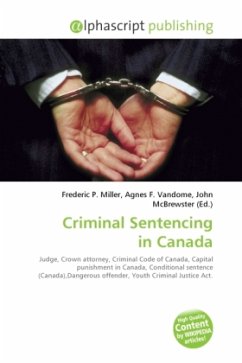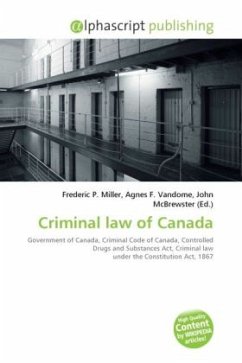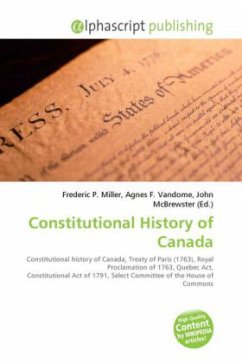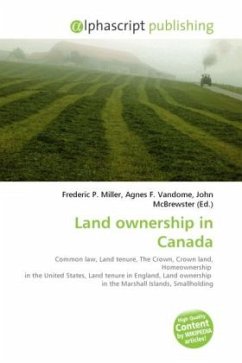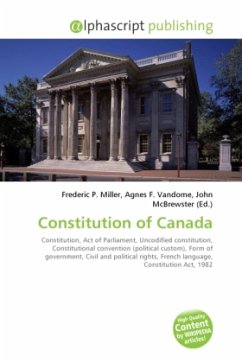High Quality Content by WIKIPEDIA articles! In Canada, a judge sentences a person after they have been found guilty of a crime (which is not the same as being convicted of the crime). After a determination is made about the facts being relied on for sentencing, and hearing from both the Crown and the defence about what the appropriate sentence should be, the judge must pick from a number of different sentencing options found in the Criminal Code of Canada, based on a number of factors. Some offences have a minimum sentence, and there may also be a maximum sentence depending on the nature of the offence. The maximum determinate sentence is a life sentence with a 25 year parole ineligibility period, and all life sentences and related parole ineligibility periods are served concurrently (at the same time). There are also options for an indeterminate sentence. There is no death penalty in Canada.
Bitte wählen Sie Ihr Anliegen aus.
Rechnungen
Retourenschein anfordern
Bestellstatus
Storno

